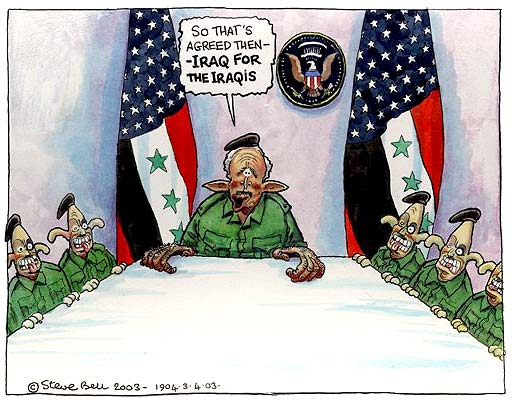Following a swift military campaign to remove the Saddam Hussein government in Iraq, it has become clear that preparations for the postwar period have been inadequate and that the occupying forces lack a workable exit strategy. Specifically, the Coalition Provisional Authority has failed to anticipate the challenges that face the postwar Iraqi economy, including the introduction of sound money to facilitate exchange.
Recent actions by the Coalition Provisional Authority to institute an independent central bank in Iraq are wrongheaded. The Central Bank of Iraq will be able to operate only through financially repressive measures that are inconsistent with a market economy. It will be prone to fiscal abuse from a provisional government and future Iraqi governments with more proposals for expenditure than probable sources of revenue. Accordingly, the central bank cannot in any way be considered independent. In light of the current realities in Iraq, central banking can only be regarded as an inferior monetary regime of last resort.
Two alternative monetary regimes that would work well to introduce sound money in postwar Iraq are a currency board regime and official “dollarization.” Both regimes have worked well to produce confidence and stability in postconflict situations and could be introduced in postwar Iraq rapidly. Moreover, both regimes have been employed previously in Iraq, with success. The quick introduction of either regime will help the Coalition Provisional Authority to establish economic stability and pave the way for a timely exit from the increasingly costly post-war engagement.


0 responses on "Monetary Options for Postwar Iraq"